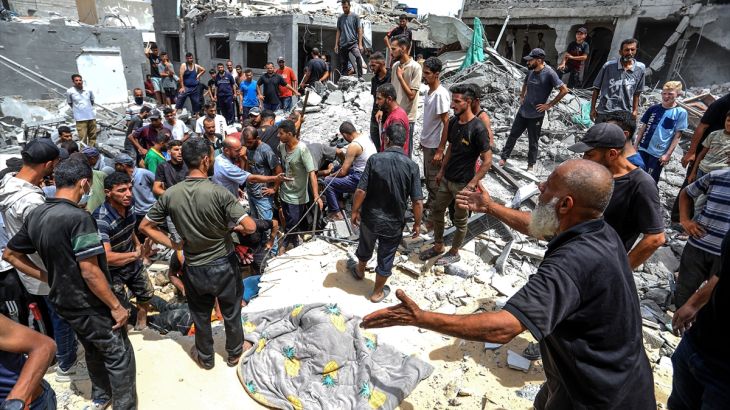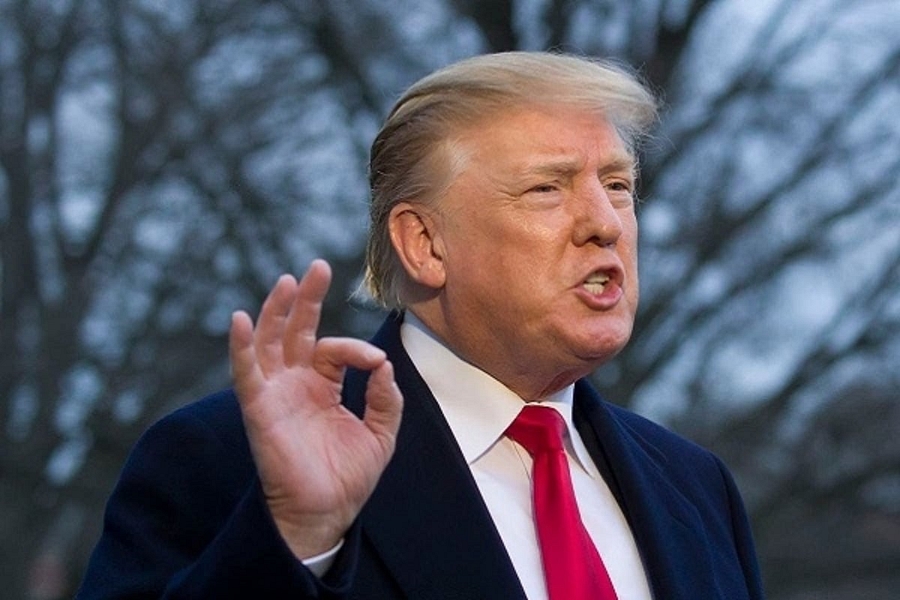Trump Proposes Gaza Feed Centers Amid Aid Crisis, Aims to Prevent Terrorist Misuse
In a surprising announcement, U.S. President Donald Trump has proposed the establishment of feed centers in Gaza, intended to address the ongoing humanitarian crisis while ensuring that aid does not fall into the hands of Hamas. Speaking to reporters, Trump emphasized the necessity for a "mechanism" to regulate the distribution of aid, reflecting the delicate balance between humanitarian assistance and national security concerns.
Background & Context
The humanitarian situation in Gaza has reached critical levels, exacerbated by ongoing conflicts and blockades that have severely limited access to food, clean water, and medical supplies. International organizations have repeatedly raised alarms about the dire conditions faced by civilians, with reports indicating that many families struggle to secure basic necessities. Trump"s proposal comes at a time when various global actors are attempting to navigate the complex political landscape of the region, where aid distribution is often complicated by the presence of militant groups.
Hamas, which governs Gaza, has been accused of diverting humanitarian aid for military purposes, leading to skepticism among donor countries and organizations. Trump"s comments reflect long-standing concerns regarding the potential misuse of aid, a sentiment echoed by numerous international leaders who seek to ensure that assistance reaches those in genuine need rather than empowering terrorist activities.
Key Developments
In his statement, Trump outlined his vision for the feed centers, which he hopes will serve as a controlled means of providing essential resources to the people of Gaza. "We need some mechanism to ensure that these centers will not feed the terrorists," Trump declared, underscoring the administration"s commitment to preventing any support for Hamas. While details on the operational framework of these centers remain unclear, Trump"s remarks signal a shift towards a more structured approach in addressing humanitarian aid in conflict zones.
This proposal has garnered mixed reactions. Some humanitarian organizations welcome the idea, believing that regulated aid could improve the situation on the ground. Others, however, express concern about the potential for further complicating an already intricate humanitarian landscape. The effectiveness of such feed centers will largely depend on the implementation of robust oversight measures to ensure transparency and accountability.
\n\n
Image for Trump Proposes Gaza Feed Centers Amid Aid Crisis, Aims to Prevent Terrorist Misuse
Broader Impact
The implications of Trump"s proposal extend beyond Gaza, potentially influencing U.S. foreign policy in the Middle East. By establishing feed centers, the administration may aim to reset its approach to humanitarian aid, emphasizing security as a critical component of any assistance program. This could set a precedent for how the U.S. engages with other regions facing similar crises, where the threat of terrorism complicates humanitarian efforts.
Experts suggest that this initiative could also affect U.S. relations with allies in the region. Countries such as Egypt and Jordan, which have historically played roles in mediating the Israeli-Palestinian conflict, may view this move as a unilateral approach that undermines collaborative efforts. As previously reported, the dynamics of U.S. diplomacy in the region remain fragile, and any shifts in policy could lead to unexpected consequences.
What"s Next
Looking ahead, the implementation of the proposed feed centers will require careful planning and coordination with international partners. The Trump administration will likely need to engage with humanitarian organizations to develop a framework that addresses both the urgent needs of the Gazan population and the security concerns associated with aid distribution. Additionally, the success of this initiative may hinge on the cooperation of regional actors who have a stake in the outcome.
As discussions continue, analysts will be closely monitoring reactions from Hamas and other factions in Gaza, as well as the responses from key international players. The situation remains fluid, and the potential for both progress and setbacks looms large as the U.S. navigates this complex landscape. For those interested in related coverage, recent developments in U.S. foreign policy may provide further insights into the administration"s strategic objectives.

Image for Trump Proposes Gaza Feed Centers Amid Aid Crisis, Aims to Prevent Terrorist Misuse


![[Video] Heavy clashes and gunfire reported in Baghdad, Iraq](/_next/image?url=%2Fapi%2Fimage%2Fthumbnails%2Fthumbnail-1768342239932-848qsh-thumbnail.jpg&w=3840&q=75)




![[Video] Gunfire between Iraqi security forces and Sadr militias in Baghdad](/_next/image?url=%2Fapi%2Fimage%2Fthumbnails%2Fthumbnail-1768343508874-4redb-thumbnail.jpg&w=3840&q=75)
